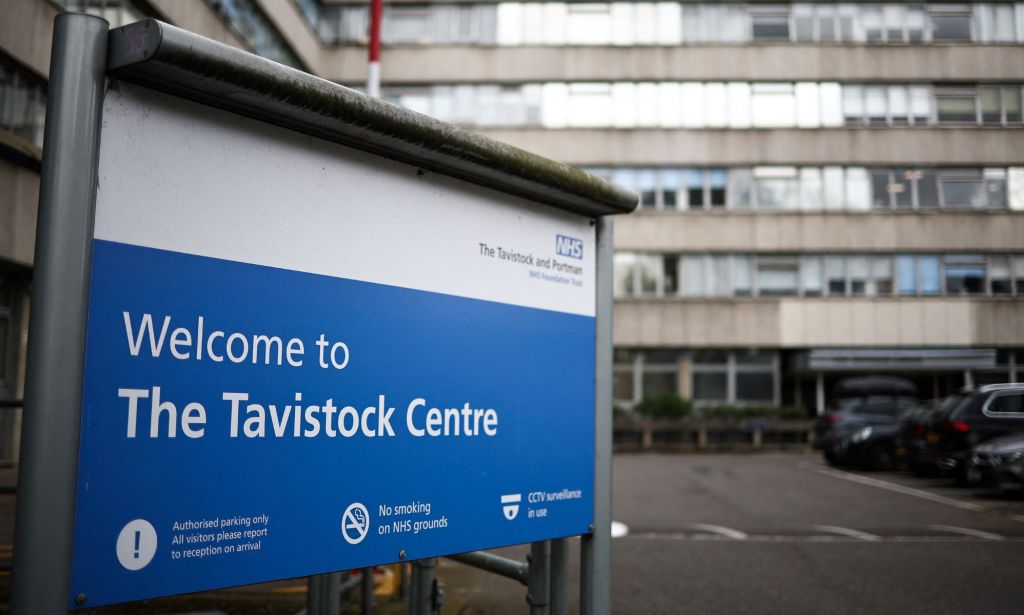Nottingham patients ‘terrified’ after ‘cruel’ decision to withdraw hormone prescriptions

Patients at a GP in Nottinghamshire have recalled the moment their GPs withdrew their hormone prescriptions. (Getty/Canva)
Patients who have had their hormones revoked by a Nottinghamshire GP have recalled the “cruel” moment they discovered their healthcare had been withdrawn.
Jubilee Park Medical Partnership, which runs various practices in the East Midlands, publicly announced on Monday (30 December) that it would stop prescribing hormone replacement therapy (HRT) medication to all transgender patients.
Those who are currently on HRT under the partnership have reportedly been told their prescription has been withdrawn, which prompted mass backlash from protest group Nottingham Against Transphobia, which deemed the decision “deeply misguided.”
Speaking to PinkNews, two patients under the partnership’s care recalled the “unconscionable” way they were told that their medication had been stripped from them just weeks before Christmas.

Samathy, a 29-year-old trans woman, says she was “terrified” upon hearing that her HRT prescription was being withdrawn.
“I have already been suffering from the worst anxiety I’ve had in many years just worrying about losing my HRT,” she says. “I can’t imagine that being forced to detransition by losing access to oestrogen and my testosterone blocker will do anything but plunge me into the worst mental state of my life.”
HRT, which uses a combination of medications to help create hormone levels which ease symptoms of depression and anxiety, has been described as life-saving by several major medical organisations.
Retracting access to HRT can cause several physical and mental health issues. Those who have had gender-reassignment surgery, also known as bottom surgery, will be unable to generate sex hormones on their own, which can cause several complications.
Withdrawal of hormones is ‘unconscionable’, patients say
Samathy says she has been on HRT for six “joyful years,” with four of them being at Jubilee Park, where she says things had previously been “problem-free”.
“My mental health was really bad before I got access to HRT on the NHS,” she says. “I’ve been able to really enjoy life since then because of HRT.”
The decision was similarly branded “unconscionable” by 32 year-old Lex, who was told just a week prior to Christmas that their testosterone had been withdrawn.
The news came after months of back-and-forth between Lex and their GP after the Nottingham Gender Identity Clinic (GIC) recommended updating their medication.

Lex says the GP preemptively agreed to the change following a consultation but then suddenly held back on enacting the changes, before contacting them to withdraw hormones altogether.
“I felt incredibly let down,” they say. “The wait to hear from them had been so very stressful, but honestly, until that phone call, I was still expecting it to be resolved amicably.
“Gender-affirming care is life-saving. This decision is completely unconscionable and the reasons they have given are indefensible.”
Lex claims a practice manager at the GP suggested that Lex access HRT privately, which they say is “totally inappropriate” given the financial issues that many trans people face.
“I have already been receiving treatment on the NHS, why should I be forced to go private now?” Lex adds.
Patients considering ‘DIY’ hormones
For both Lex and Samathy, the situation has left them between a rock and a hard place, being forced to consider “DIY” HRT – the act of buying hormones online with little-to-no medical overview.
Samathy added that DIY is a last resort, as it can be “risky and expensive.”
“I may end up having to ‘DIY’ my medication if I can’t find an NHS GP to help. I’d much rather enjoy being treated for my NHS diagnosed medical condition by an NHS doctor,” she says. “As history shows us, removing people’s access to healthcare does not remove the need for it. People will get what they need outside of safe channels.”
In an effort to urge the partnership to reverse their decision, both have begun petitioning through complaints and peaceful protests, urging others affected by the situation to do the same.
“I am actively writing to complaints to anyone that I can to try to get the visibility required for this GP practice to reverse this decision,” she continues. “Make noise, don’t let GP practices get away with this behaviour. We deserve access to healthcare just like everyone else does.”

In a statement to PinkNews, Jubilee Park Medical Partnership wrote that the decision was made because it believes that prescribing hormones is “more appropriately provided by a specialist” and is “beyond the clinical expertise and knowledge of the GPs to provide this service in the way that it should be provided.”
It added that prescriptions should be handled through one of the eight Gender Identity Clinics (GICs) in England, but admitted that those clinics “cannot keep pace with the growing demand for these services.”
It said that hormone prescriptions had not been funded “as a national or local enhanced service,” nor, it says, has it been “commissioned by our local commissioners.”
It finished by adding that it believes the work is “not part of the GP contract.”
It is understood that cisgender patients are still able to access hormone replacement therapy for menopause-related symptoms.
How did this story make you feel?

